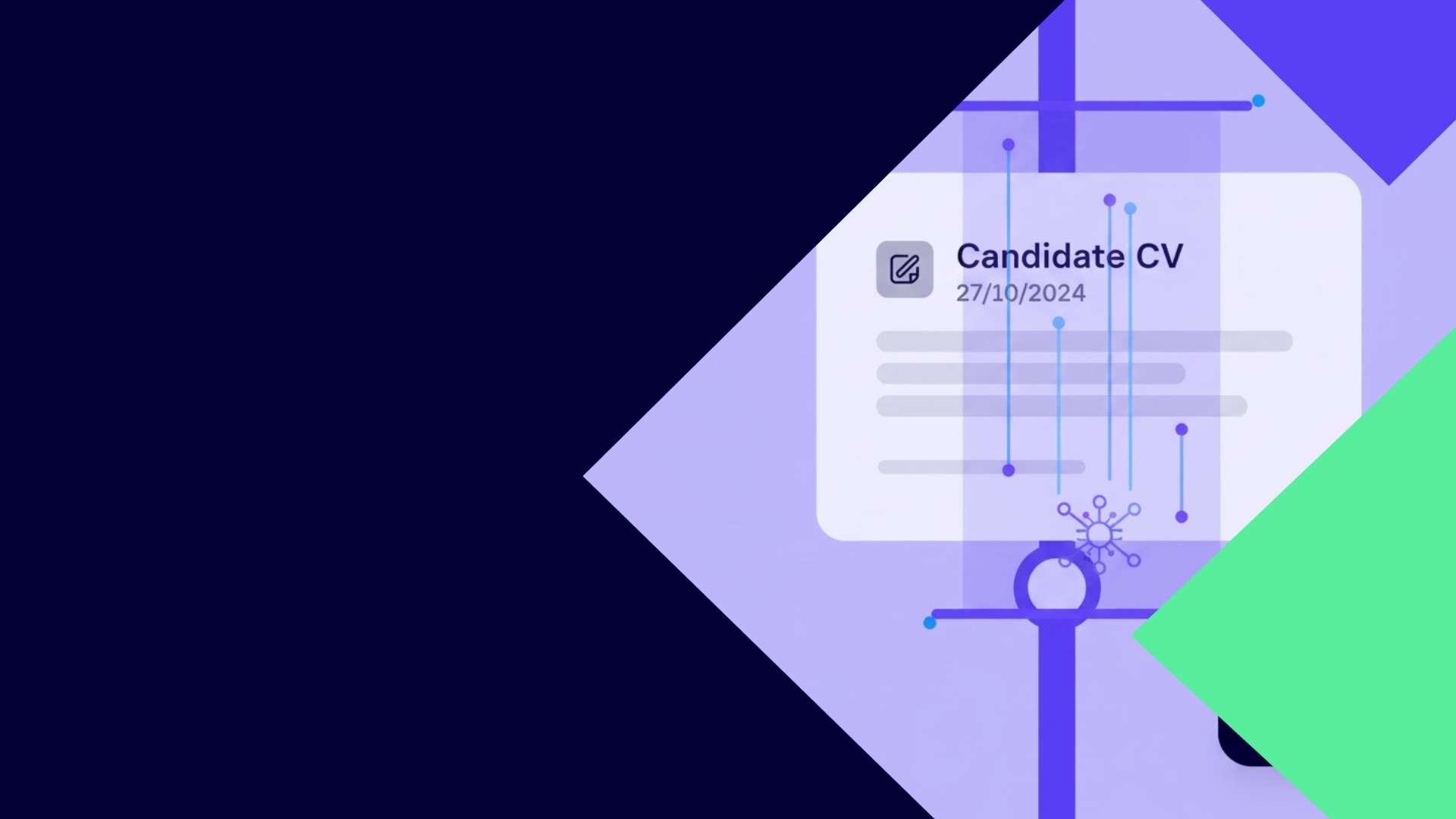Predictive Analytics in HR: Forecasting Workforce Needs with AI in 2024
Introduction
Everyone working in HR is thinking the same thing: the rate of change we’re currently seeing in the workplace is unheard of. Organisations are in a constant struggle to find, keep, and develop the talent they need to succeed because of shifting demographics, evolving business models, and technological breakthroughs.

It’s this last factor that is proving pivotal for companies wishing to bolster their strategic HR decision-making. We already know that AI can help with recruitment, offering increased efficiency and elevating the candidate experience, but the future of HR could well lie in the ability to see the future (or at least predict it).
Predictive analytics, powered by AI, is emerging as a game-changer for HR, enabling organisations to proactively forecast workforce needs and make data-driven decisions about their most valuable asset: their people.
Understanding the basics and benefits of predictive analytics in HR
What is predictive analytics? It’s both simple and complex. Predictive analytics does what you’d expect: analysing past and present data to predict future events. If you’ve encountered descriptive analytics (analysing past data to find out what happened previously in an organisation and why), then predictive analytics just takes it one step further.
It sounds like the future, but companies are already leveraging predictive analytics in HR to gain deeper insights into their workforce, understand future requirements, and build agility into their talent management strategies. A treasure trove of people data resides within Human Resources Information Systems, and by pairing this with predictive analytics HR, forecasts on the impact of policies on employee well-being and performance can be made, and that’s just for starters.
How AI-driven analytics can improve talent acquisition, retention, and workforce planning
It doesn’t take an HR guru to imagine how workforce analytics could be so incredibly beneficial within an organisation. Let’s talk about some of the ways HR data analytics is already boosting forward-thinking companies and why you should join them.
Anticipate skills gaps and future demand
Gone are the days of reactive hiring fueled by immediate needs. Predictive analytics can analyse massive volumes of data, including historical patterns, market projections, competitor insights, and internal metrics, to detect growing skill demands and project future workforce requirements.
This kind of workforce analytics allows organisations to plan their talent acquisition strategies well in advance, proactively searching out the necessary candidates before the market suddenly shifts. Similarly, armed with this knowledge, reskilling and upskilling initiatives can be put in place to ensure that any current skills gap is filled in. The workforce is now fully prepared for any future challenge.
Drive more effective talent acquisition
Recruitment is a chore at the best of times, and with the hunt for the best talent never being so competitive, it can feel downright impossible. Thankfully, predictive analytics can relieve some of the burden from weary HR professionals by analysing data from CVs, job descriptions, and candidate profiles to identify the best matches for open positions.
This proactive approach has numerous benefits. Along with the natural savings of time and resources, organisations will also offer an improved candidate experience by matching them with suitable roles and providing personalised communication throughout the process. By recognising possible biases in recruiting algorithms and encouraging fair talent selection practices, they will also create a workforce that is inclusive and diverse, making it stronger, more productive, and more innovative.
Predict employee turnover and flight risk
Every HR professional knows the headache (and heartache) of losing valuable employees. It’s costly and disruptive to replace them, but what if you could predict who is thinking of leaving and head them off at the pass?
Predictive analytics enables HR to identify workers who are likely to leave by analysing performance data, engagement surveys, and internal behaviour patterns. For example, one company found that many employees would leave after receiving a promotion. How could that make sense? Predictive analytics deduced that those who weren’t given a substantial pay rise to go with the promotion often quickly quit. An issue easily remedied that might have gone undetected.
That story gets to the heart of why predictive analytics in HR is so beneficial. It enables them to proactively address issues raised by workers that could cause them to quit, which promotes a happier and more engaged staff. Targeted retention tactics like individualised professional development plans, attractive benefits packages, and enhanced work-life balance programmes can also be implemented.
Future trends in HR analytics and the evolving role of AI in human resources management
As we’ve seen, the future of HR analytics isn’t years or even months away. It’s here right now, and it’s being used to boost workforces around the globe.
As this exciting technology develops, we can expect to see further advances in highly personalised insights, predictive talent acquisition, continuous performance management, and AI-powered learning and professional development. But HR should never forget that AI, for all its power and uses, can’t replace humans.
AI will automate tedious jobs and give data-driven insights, while HR professionals will use their human touch to evaluate data, make strategic choices, and develop deep connections with people. The future of HR analytics will be a collaborative approach that will shape the future of HR.
It’s not just predictive analytics changing how HR professionals operate. Many are also reaping the benefits of automation in tools like reference checking software. Gone are the days of manually chasing down and checking references, combing for errors and falsehoods. With platforms like RefNow, the whole process is streamlined. Speed up your time-to-hire, saving you time and resources, confidently hire verified candidates via first-class fraud prevention methods, and find top-vetted talent to grow your business.
Over 12,000 organisations, including River Island, Hasbro, and the NHS, trust RefNow to simplify their hiring process.
If you would like to learn more about how RefNow's automated Employment Referencing software can help your organisation, reach out to us today and get your first 2 checks free.



.jpg)



